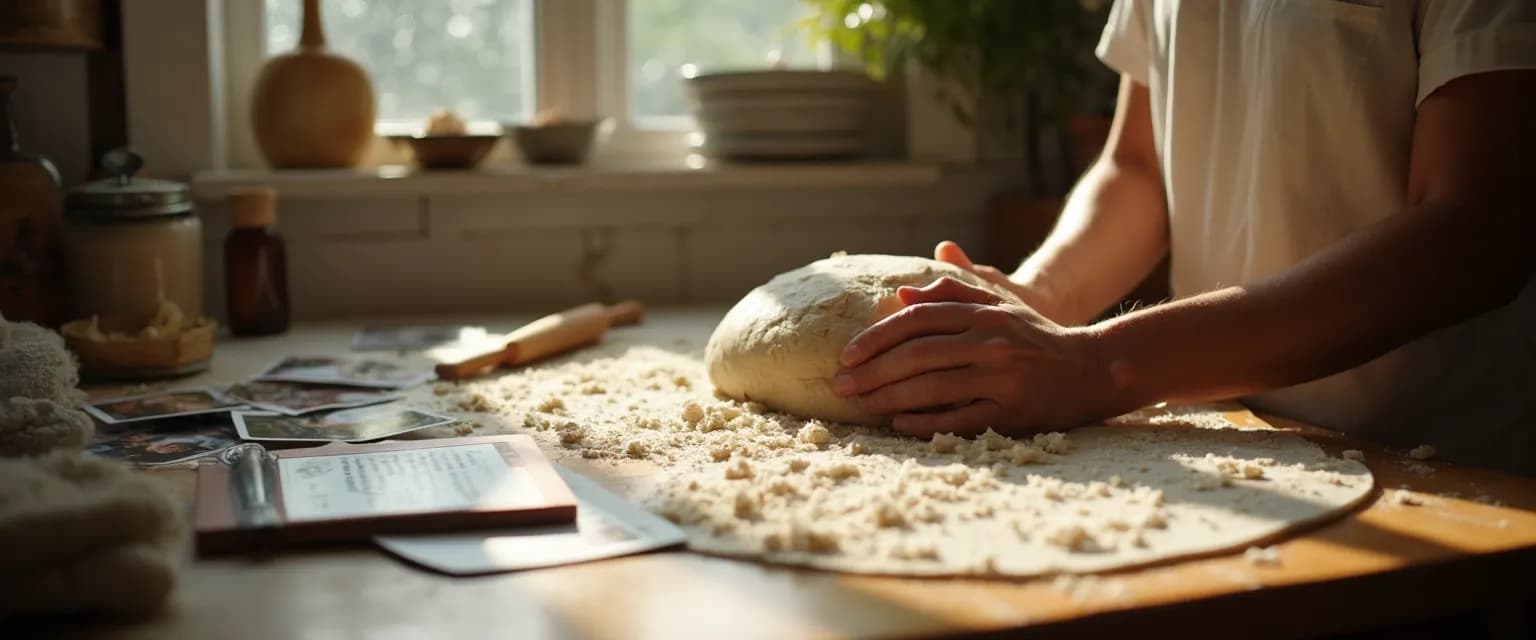Healing Through Action: 5 Unexpected Ways To Deal With Grief | Grief
Finding healthy ways to deal with grief is essential for navigating the complex emotional landscape that follows loss. Grief arrives like an uninvited guest, bringing waves of emotion that can feel overwhelming and unpredictable. While everyone's journey through grief is unique, research shows that engaging in certain activities can provide structure and comfort during these difficult times. Among these, cooking has emerged as a surprisingly effective therapeutic practice for those seeking ways to deal with grief.
The kitchen often becomes a sanctuary for those experiencing loss. The simple act of chopping vegetables, stirring a pot, or kneading dough provides tangible ways to deal with grief that engage both mind and body. These activities offer a gentle method for anxiety management while creating something nourishing – both literally and emotionally.
When we're struggling to process loss, cooking offers structure when everything else feels chaotic. It provides a beginning, middle, and end – a complete process that results in something tangible, even on days when accomplishing anything seems impossible.
Physical Movement: A Surprising Way to Deal with Grief
One of the most effective ways to deal with grief involves physical movement, and cooking naturally incorporates this healing element. The physical actions of cooking – chopping, stirring, kneading – engage your body in gentle, rhythmic movements that release tension stored in your muscles.
Research shows that physical activity stimulates the production of endorphins, your body's natural mood elevators. These biochemical changes help counteract the heaviness that grief brings. Even when energy levels are low, the simple movements involved in meal preparation provide enough activity to create this beneficial effect.
The science behind movement as one of the best ways to deal with grief relates to how our bodies process emotions. Physical activity helps regulate the nervous system, which often becomes dysregulated during grief. The science of mental resilience shows that engaging in purposeful movement creates new neural pathways that support emotional healing.
Try simple cooking projects that match your energy level – from assembling a simple sandwich on difficult days to tackling a more involved recipe when you feel ready for more engagement. The key is finding movement that feels supportive rather than depleting.
Sensory Grounding: Practical Ways to Deal with Grief in the Moment
Cooking engages all five senses, making it one of the most effective ways to deal with grief through sensory grounding. When grief feelings become overwhelming, focusing on sensory experiences can interrupt the cycle of difficult emotions and bring you back to the present moment.
The kitchen is full of powerful sensory experiences: the aroma of herbs and spices, the sound of water boiling, the feel of different textures, the visual appeal of colorful ingredients, and of course, the taste of the finished dish. These sensory inputs activate different parts of your brain, creating a natural calming effect similar to mindfulness practices.
Neurologically, focusing on sensory input helps shift activity from emotional brain centers to areas associated with present-moment awareness, providing immediate relief during intense grief moments.
Finding Your Path: Personalized Ways to Deal with Grief
Developing personalized ways to deal with grief means identifying techniques that resonate with your unique situation. Cooking offers this flexibility, allowing you to adjust the complexity and emotional significance of your kitchen activities based on your needs.
Consider creating a simple toolkit of go-to recipes for different emotional states. On days when grief feels overwhelming, have ultra-simple recipes ready that require minimal decisions. When you have more emotional bandwidth, more complex recipes can provide a welcome distraction and sense of accomplishment.
Many find that preparing dishes that connect them to loved ones becomes a meaningful ritual. Recreating a family recipe can become one of the most healing ways to deal with grief, transforming loss into a celebration of connection and memory.
Be patient with yourself as you explore cooking as therapy. Some days, simply making toast might be your achievement – and that's perfectly okay. The journey through grief isn't linear, and your cooking practices can adapt accordingly.
Finding effective ways to deal with grief often means combining different approaches. Cooking offers a unique healing modality that engages body, mind, and heart simultaneously. By incorporating this accessible practice into your grief journey, you're giving yourself a powerful tool for processing emotions, finding moments of peace, and eventually discovering joy again – one meal at a time.




